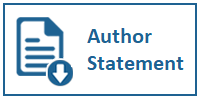Spam Filtering On User Feedback Via Text Classification Using Multinomial Naí¯ve Bayes And TF-IDF
DOI:
https://doi.org/10.31937/ti.v13i2.2149Abstract
User feedback could give developer an information on what should be fixed or should be improved. But there are many user feedback that are actually spam. In user feedback, spam contents are more likely to be an inappropriate feedback, a feedback that is not actually a feedback, just some random comment or even a question. Reading and choosing feedback manually could be costly, especially in terms of time and energy. Therefore, this research focuses in building a spam filtering model using Multinomial Naí¯ve Bayes that implement a TF/IDF approach to detect spam automatically. For text classification, Multinomial Naí¯ve Bayes proved on having better speed and having good performance. With TF/IDF, word that highly occurred in many documents has less impact than other so it could help increasing performance from imbalanced dataset. This research aims to implement Multinomial Naí¯ve Bayes for spam filtering in user feedback and to measure performance of the model. Best performance of this classifier was obtained when using up-sampling method and typo corrector with 70:30 ratio of train and test set resulting in 89.25% for accuracy, 45% for precision, 56% for recall, and 50% for F1-Score.
Downloads
Downloads
Published
How to Cite
Issue
Section
License
Authors retain copyright and grant the journal right of first publication with the work simultaneously licensed under a Creative Commons Attribution-ShareAlike International License (CC-BY-SA 4.0) that allows others to share the work with an acknowledgement of the work's authorship and initial publication in this journal.
Authors are able to enter into separate, additional contractual arrangements for the non-exclusive distribution of the journal's published version of the work (e.g., post it to an institutional repository or publish it in a book), with an acknowledgement of its initial publication in this journal.
Copyright without Restrictions
The journal allows the author(s) to hold the copyright without restrictions and will retain publishing rights without restrictions.
The submitted papers are assumed to contain no proprietary material unprotected by patent or patent application; responsibility for technical content and for protection of proprietary material rests solely with the author(s) and their organizations and is not the responsibility of the ULTIMATICS or its Editorial Staff. The main (first/corresponding) author is responsible for ensuring that the article has been seen and approved by all the other authors. It is the responsibility of the author to obtain all necessary copyright release permissions for the use of any copyrighted materials in the manuscript prior to the submission.















